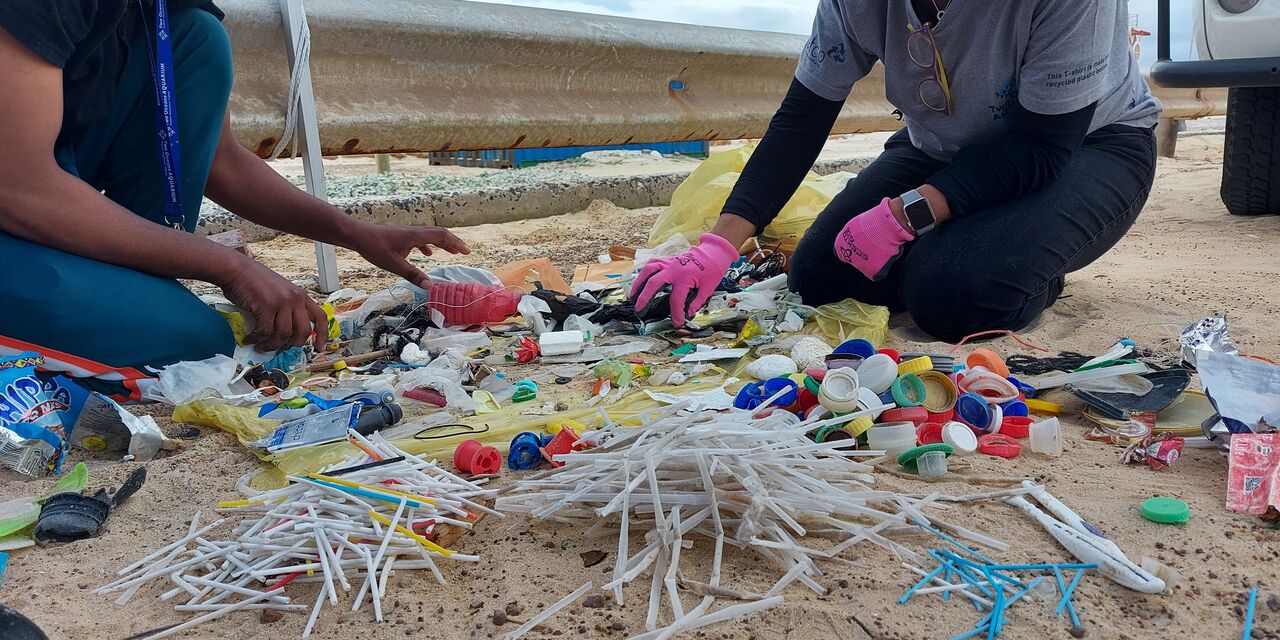
Research
The Two Oceans Aquarium, active for 30 years, engages in marine research collaborations with higher education institutions, researchers, and scientists from formal conservation bodies and research institutes, government research departments, and other aquaria. Through our biophysical research programme, we make the Aquarium and our various data sets available to these institutions and support workplace integrated learning and research at our facilities.
Having supported over 60 research projects, our staff co-authored numerous peer-reviewed journal articles. Guided by an external Research Advisory Board and an internal Research Steering Committee, our research receives final approval from the Ethics Committee. With the Two Oceans Aquarium Foundation, we aim to lead aquarium-based research in Africa.
Future scientists
Fostering the next generation of scientists is a priority. Our collaboration with Cape Peninsula University of Technology’s 3rd year Diploma in Marine Sciences Work Integrated Learning (WIL) programme provides students with essential on-the-job training and technical skills for scientific research. Additionally, we supervise postgraduate students from South African and international universities, supporting their pursuit of higher degrees in universities worldwide.
Research areas
Turtles
South African waters host five turtle species, all sadly listed on the IUCN Red List. Loggerhead and leatherback turtles nest on the northern KwaZulu-Natal coast, while Olive Ridley, green, and hawksbill turtles visit our coastal waters. The Turtle Conservation Centre, part of the Two Oceans Aquarium Foundation, actively rescues, rehabilitates, and releases stranded turtles. The team collects crucial data on size, diagnostics, feeding, treatment, plastic ingestion, and post-release movement, contributing to post-graduate studies and publications.
Collaborating with SAIAB's Acoustic Tracking Array Platform (ATAP), our team acoustically tags turtles, advancing research on the coastal movements of juvenile green and hawksbill turtles. We collaborate with national and international rehabilitation facilities, contributing to the global knowledge base for turtle conservation.
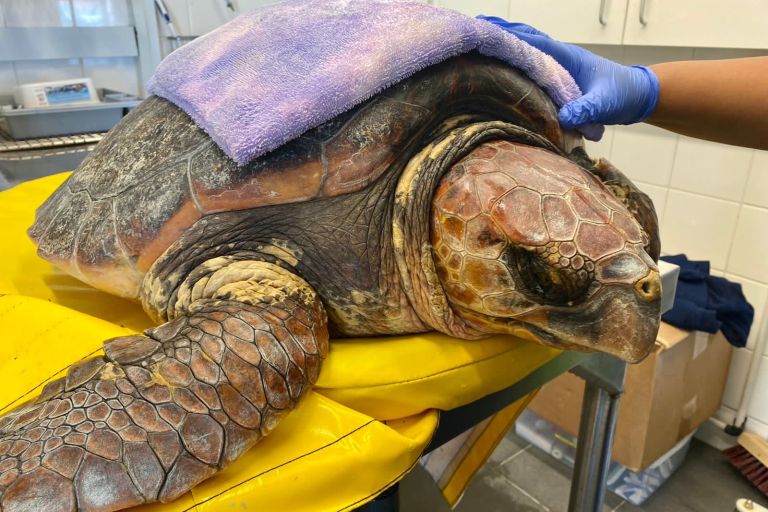
Sharks and rays
The Two Oceans Aquarium showcases 12 of the 160 sharks and rays in southern African waters. Collaborating with academic institutes, especially on elasmobranch projects involving exhibited species, is ongoing. In a joint effort, the Two Oceans Aquarium and Foundation, Shark Spotters, and the SAIAB’s Acoustic Tracking Array Platform are addressing knowledge gaps for priority species. Results directly impact spatial management of vulnerable chondrichthyans in False Bay, informing Marine Protected Area effectiveness and understanding anthropogenic overlap.
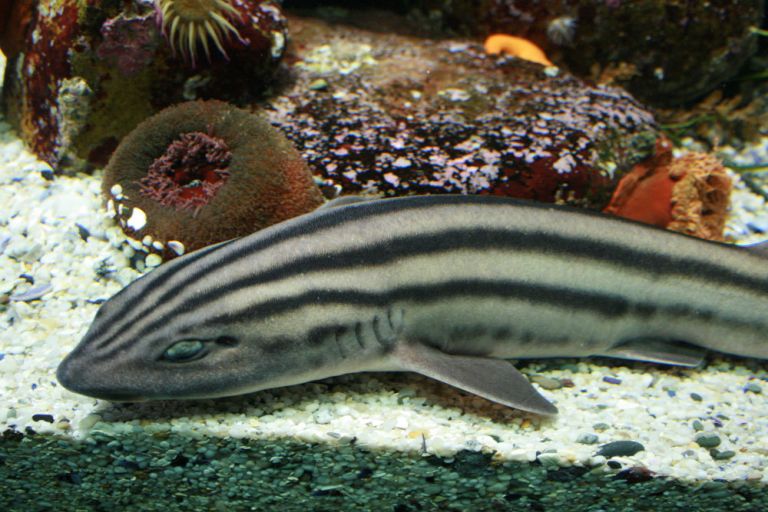
Sunfish
The Two Oceans Aquarium has undertaken the rescue, exhibition, and release of numerous sunfishes found trapped in the V&A Waterfront basins. In 2004, the Aquarium collaborated with National Geographic researcher Dr Tierney Thys to capture, handle safely, and satellite tag four sunfishes.
Our commitment to sunfish research aims to enhance knowledge and contribute to their conservation. Teaming up with the University of Cape Town, an ongoing project focuses on determining species diversity and distribution along the southern African coast. This initiative involves biological data collection, fostering awareness of these iconic animals through citizen science and communication, and ultimately contributing to improved management of various sunfish species.
Marine animal welfare
The V&A Waterfront is an incredible area where recreational, industrial, and residential use overlap with marine wildlife. The Two Oceans Aquarium Foundation's Marine Wildlife Management Programme leads wildlife management in this Blue Flag Harbour, promoting harmonious human-wildlife coexistence. Foot patrols by wildlife monitors collect daily data on the presence and movements of various species of marine wildlife, with a focus on Cape fur seals (Arctocephalus pusillus pusillus), Cape clawless otters (Aonyx capensis), and different species of seabirds.
Ongoing projects include collaboration with the Department of Fisheries Forestry and the Environment on seal disentanglement. Regular rooftop checks ensure the safety of seabirds and chicks in the precinct. Initiatives also include recent research on the local Cape clawless otter community. The team’s monitoring and rescue efforts valuable data used for welfare and plastic pollution research.
Penguins
The Two Oceans Aquarium features two species of penguins: the endangered African penguin (Spheniscus demersus) and the northern rockhopper penguin (Eudyptes moseleyi). The rockhopper penguins, native to the South Atlantic and Indian Oceans, were rehabilitated by SANCCOB after being stranded on the southern Cape beaches before being donated to the Aquarium. Due to disease transmission risks, they cannot be released into the wild.
Collaborating with the Animal Science laboratory at the University of the Western Cape, our novel research on both species’ sperm viability offers insights into the potential impacts of aquatic toxins on penguin reproduction. Additional ex-situ projects explore the diet, moulting, and reproductive activities of the two penguin species under our care. This knowledge is crucial for enhancing the animal husbandry of penguins in zoos and aquaria, benefitting both the animals and the institute.
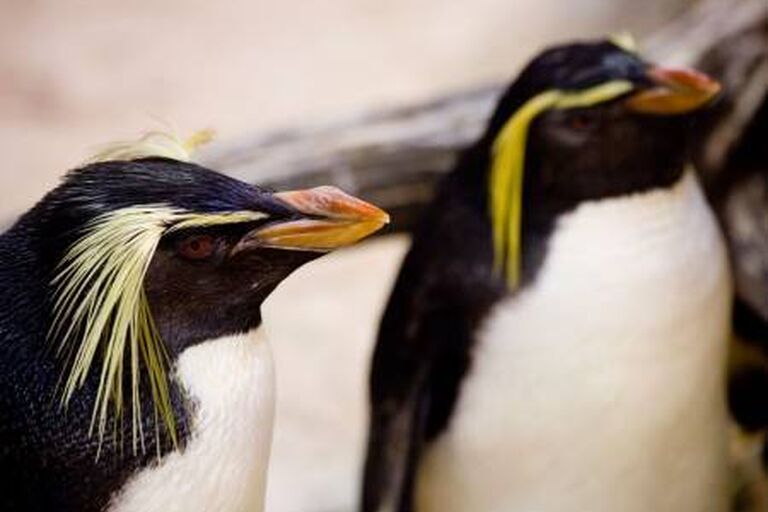
Marine Social Science and Behaviour Change
Our research in these emerging and critical areas has received significant support, propelling us to the forefront of marine social science and behaviour change studies.
In collaboration with the University of Cardiff, we are spearheading Africa’s inaugural Ocean Literacy survey, aiming to establish a national network and guidelines for best practices in Ocean Literacy. Our Behaviour Change research is expanding, addressing critical issues like sustainable seafood, plastic pollution and food waste. Initiatives are underway to gather evidence of the contribution of raising awareness and encouraging behaviour change among visitors to conservation. Early findings from visitor research have guided the design of signage and presentations for various species, including African penguins and ragged tooth sharks.
Water quality and pollution
The Two Oceans Aquarium conducts water quality analysis daily. A significant database has been established and is used to determine seasonal water quality trends, assist with monitoring our intake pump systems, and provide insight into our filtration systems.
The Two Oceans Aquarium regularly hosts the Cape Peninsula University of Technology 3rd Year Work Integrated Learning students. Projects have investigated the presence of microplastics within the V&A Marina and in Aquarium exhibits. Using water, selected fish species, and invertebrates, we can assess levels of metals and chemicals within the Aquarium. This is critical research as anthropogenic activities in the Waterfront precinct increase.
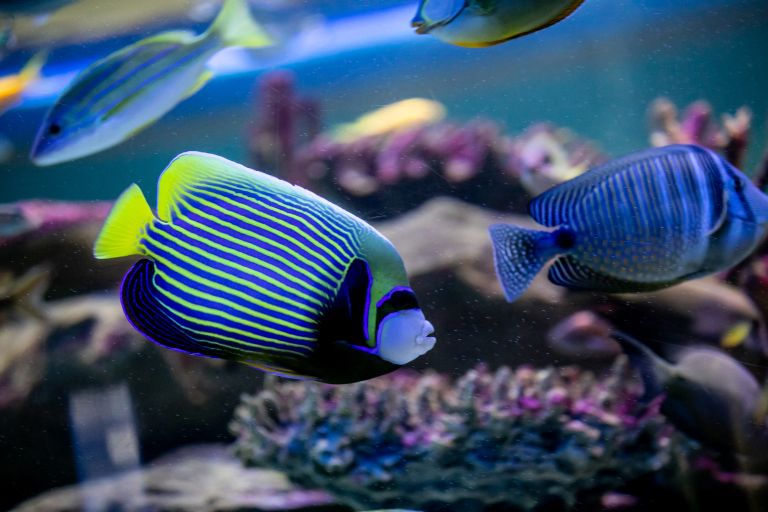
Parasitology
While parasitic infections in the aquatic environment are a natural occurrence, it is crucial to study and understand the potential impact of infestations on all fish species in an aquarium or aquaculture facility. Investigating the host-parasite relationship and understanding their life cycles is essential for ensuring the well-being of the fish in our care.
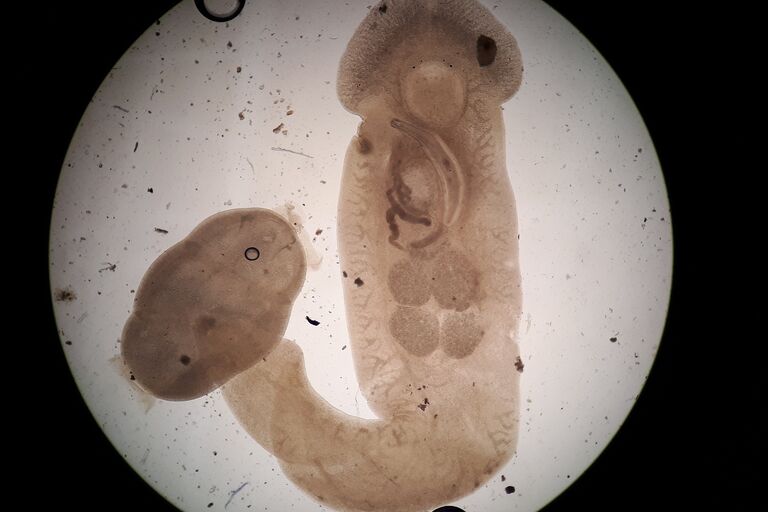
Research publications
- Mashkour, N., Nicolle, N., & Spiby, K. (2020).Disease risk analysis in sea turtles: a baseline study to inform conservation efforts. PLoS ONE, 15(10), e0230760. doi:10.1371/journal.pone.0230760
- Ryan, P. G., Cole, G., Spiby, K., Nel, R., Osborne, A., & Perold, V. (2016).Impacts of plastic ingestion on post-hatchling loggerhead turtles off South Africa. Marine Pollution Bulletin, 107, 1–6.
- Atkins, S., J. Mann-Lang, G. Cliff, J. M. Olbers, A. A. Kock, S. Lucrezi, M. K. P. Griffiths, T. Jordaan, S. Plön, C. A. Matthee, N. Pillay, and M. Cantor. (2025). Navigating transdisciplinary waters to protect both sharks and bathers in KwaZulu-Natal, South Africa: diverse stakeholders propose potential actions. Ecology and Society 30(3):18. https://www.aquarium.co.za/uploads/files/ES-2025-16288.pdf
- https://doi.org/10.5751/ES-16288-300318
- de Necker, L. (2017).The trophic dynamics of the broadnose sevengill shark (Notorynchus cepedianus) in False Bay, South Africa, using multiple tissue stable isotope analysis. MSc Thesis, [University name not specified].
- Smale, M. J., Booth, A. J., Farquhar, M. R., Meyers, M. R., & Rochat, L. (2012).Migration and habitat use of formerly captive and wild ragged-tooth sharks (Carcharias taurus) on the southeast coast of South Africa. Marine Biology Research, 8, 115–128.
- Hays, G. C., Farquhar, M. R., Luschi, P., Teo, S. L. H., & Thys, T. M. (2009).Vertical niche overlap by two ocean giants with similar diets: ocean sunfish and leatherback turtles. Journal of Experimental Marine Biology and Ecology, 370, 134–143.
- Sparks, C., Viljoen, N., Hill, D., Lassen, J., & Awe, A. (2023).Characteristics and risk assessment of microplastics in water and mussels sampled from Cape Town Harbour and Two Oceans Aquarium, South Africa. Bulletin of Environmental Contamination and Toxicology, 110, 104. https://doi.org/10.1007/s00128.
- Gardner, B. R., Spolander, B., Seakemela, S. M., McCue, S. A., Kotze, P. G. H., & Musson, M. (2021).Disentanglement of Cape fur seals (Arctocephalus pusillus pusillus) with reversible medetomidine-midazolam-butorphanol. Journal of the South African Veterinary Association, 92, a2119.
- Adams, I. A., Roussouw, N., Reed, C., Ham, G. S., & Plön, S.(2025). Long-term host parasite dynamics in eight odontocete species from south-eastern South Africa. International Journal for Parasitology: Parasites and Wildlife, 28, Article 101133. https://doi.org/10.1016/j.ijppaw.2025.101133
- Vaughan, D. B., & Chisholm, L. (2010).Heterocotyle tokoloshei sp. nov. (Monogenea, Monocotylidae) from the gills of Dasyatis brevicaudata (Dasyatidae) kept in captivity at Two Oceans Aquarium, Cape Town, South Africa: description and notes on treatment. Acta Parasitologica, 55(2), 108–114.
- Vaughan, D. B., & Christison, K. (2010).A new species of Myxinidocotyle (Monogenea: Acanthocotylidae: Myxinidocotylinae) from captive six-gill hagfish, Eptatretus hexatrema (Chordata: Myxinidae), with amendment of the subfamily diagnosis. Zootaxa, 2650(1), 47–56.
- Vaughan, D. B., Christison, K. W., Hansen, H., & Shinn, A. P. (2010).Gyrodactylus eyipayipi sp. n. (Monogenea: Gyrodactylidae) from Syngnathus acus (Syngnathidae) from South Africa. Folia Parasitologica, 57(1), 11–15.
- Johnson, L., Connan, M., Bustamante, P., Parsons, N., Rutgers, S., & Ryan, P. G. (2025).Wear influences mercury concentrations and stable isotope values in penguin feathers. Environmental Toxicology and Chemistry, vgaf188. https://doi.org/10.1093/etojnl/vgaf188
- Mafunda, P. S., Maree, L., Kotze, A., & Van Der Horst, G. (2017).Sperm structure and sperm motility of the African and rockhopper penguins with special reference to multiple axonemes of the flagellum. Theriogenology, 99, 1–9.
- Dunga, L.V., Sink, K.J., Van der Bank, M.G., Harris, L.R., Van Niekerk, L., Perschke, M., Brand, R., Mann-Lang, J., Bruton, M., Strand, M., Rivers, N., Lamberth, S., Clift, H., Snow, B., Knott, E., Gee, K., 2025. Piloting a culturally significant areas framework for spatial planning and management in the coastal environment of South Africa. Marine Policy, Volume 180, ISSN 0308-597X. https://doi.org/10.1016/j.marpol.2025.106807
- Kasdin, A. E. (2014).Effect of experiences with captive and non-captive African penguins (Spheniscus demersus) on conservation attitudes, learning, and behaviour of visitors. Senior Thesis, Princeton University.